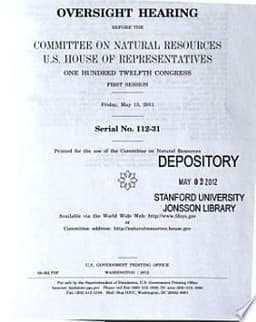- Published on
American Energy Initiative
- Authors

Summary
This document, authored by Ivy Main in July 2018, serves as a critical examination and guide to the current landscape of wind and solar energy policies in Virginia. It seeks to inform a wide audience, including decision-makers, industry stakeholders, advocates, and consumers, about the intricacies of Virginia's legal and policy frameworks governing wind and solar energy. The guide is structured to not only outline the current state of play but also to pinpoint barriers and offer insights into how Virginia can harness the full potential of clean energy technologies.
Introduction
- The guide begins with an overview of Virginia's current laws, policies, and proposals related to wind and solar energy.
- It emphasizes the need for comprehensive understanding among various stakeholders to navigate the complexities of energy policy effectively.
Current State of Wind and Solar Policy
- Wind Energy: Discusses the legislative and regulatory environment, highlighting specific challenges and opportunities for wind energy development in Virginia. It includes an analysis of utility-scale projects and the potential for offshore wind energy.
- Solar Energy: Provides a detailed review of solar energy policies, including net metering, solar renewable energy credits (SRECs), and incentives for residential, commercial, and utility-scale solar installations.
Barriers to Renewable Energy Adoption
- Identifies key obstacles hindering the growth of wind and solar energy in Virginia, such as regulatory hurdles, limited financial incentives, and infrastructure challenges.
- Offers an in-depth look at the policy gaps and the need for more aggressive renewable energy targets to meet both state and federal sustainability goals.
Recommendations and Future Outlook
- Proposes a set of targeted recommendations aimed at enhancing the policy framework to better support the growth of wind and solar energy in Virginia. These recommendations include improving net metering policies, increasing access to financing options for renewable energy projects, and removing regulatory barriers.
- Highlights the importance of stakeholder engagement and public-private partnerships to drive the adoption of renewable energy technologies.
Conclusion
- The guide concludes with a call to action for policymakers, industry leaders, and communities to collaborate in advancing Virginia's renewable energy agenda.
